Main Affect vs. Effect Takeaways:
- Both affect and effect can be verbs and nouns
- Affect is usually a verb that means to change
- When affect is a noun, it means a type of behavior, disposition, feeling, or emotion
- Effect is usually a verb that means to cause change
- When effect is a noun, it means the results of a change
- Mnemonic devices like RAVEN (remember—affect, verb; effect, noun) can help you remember the difference between these two.
- Affect and effect are not true homophones, meaning they are not pronounced the same way.
If you’re still not sure whether to use affect or effect in your otherwise perfect sentence, you’re not alone. Let’s quickly break down each point with clear examples and pronunciation guides.
The Most Common Use for Affect: Verb
The Exception: Affect as a Noun
One of the most confusing things about the English language is that it often uses the same words to mean different things.
How do you keep everything straight? One trick for telling the difference between the noun version of a word and the verb version is the way that each is pronounced.
When affectis a verb, emphasize the second syllable = uh-FEKT
When affect is a noun, emphasize the first syllable = AH-fekt
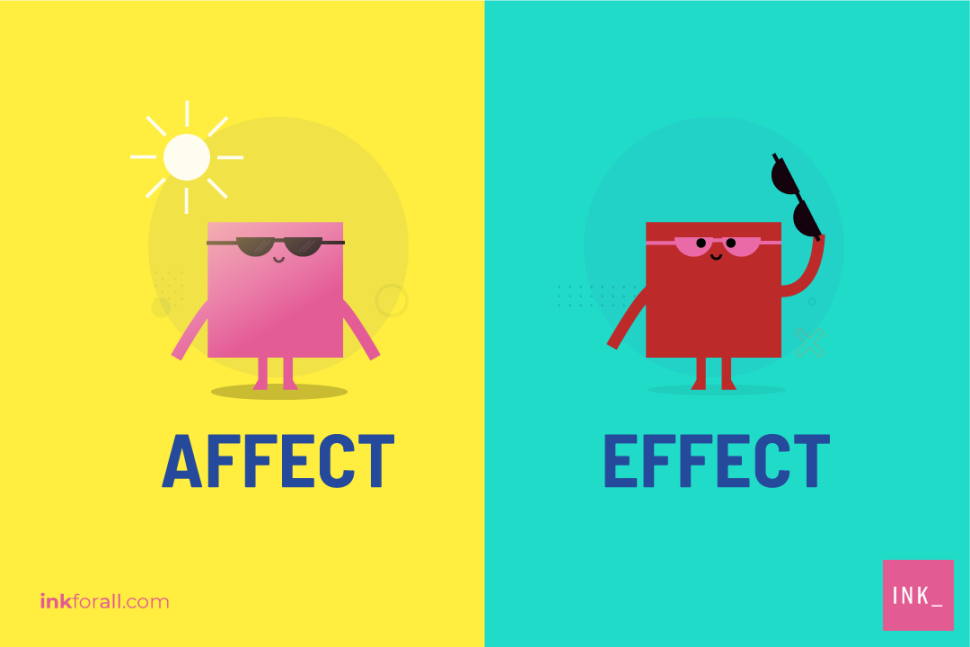

The Most Common Use for Effect: Noun
The Exception: Effect as a Verb
Effectis pronounced the same way whether it’s acting as a verb or noun.
Always emphasize the second syllable = ee-FEKT
Let’s look at a few more examples.
How do you Remember Affect and Effect?
Here are three simple tricks for remembering the difference between affect vs. effect. First, “A” comes before “E“in the alphabet. The “A“stands for the action that affects and comes before the effect. Second, if you can replace the word with influence, then you should probably use affect. If you can replace the word with result, you should probably use effect. Third, use the RAVEN mnemonic device: remember—affect, verb; effect, noun.
A mnemonic device is a learning technique that makes it easy to remember and recall information. Try using the RAVEN method to remember the common uses of affect and effect.
- Remember
- Affect
- Verb
- Effect
- Noun
Fourth, but not least, is to remember that effect represents the end. For instance, if you’re referring to the ending result of an action in your sentence, you should use effect. It’s easy to remember since effect and end both start with the letter e.
What is the Difference Between Affect and Effect?
Affect and effect are one of the most mixed-up pairs in the English language. The confusion is due to two main reasons. First, they can sound similar when you say them. On top of that, both effect and affect can function as nouns or verbs. On one hand, affect is usually a verb and means to change or to influence. On the other hand, effect is usually a noun and means the result of a change. In general, affectcovers the relationship between behavior and actionwhile effect covers the relationship between change and results.
Think about it this way: Affect and effect sit on opposite sides of a sentence in the roles of cause and outcome.


Will it Affect or Effect Me?
In this example, the correct answer is affect. This is because affect is acting as a verb. You can confirm this two ways. First, you can substitute affect with the verb influence and the sentence still makes perfect sense. What’s more, it is the subject of the sentence and, as a result, acting as noun. Since the sentence already has a noun, the noun effect won’t work. Therefore,
Did the Cold Affect or Effect you?
The correct answer is affect. You can be sure because cold the the subject of the sentence. Since the sentence already has a subject and noun, the noun effect won’t work. Instead, the sentence needs a verb to make sense. In this way, affect makes sense here because it is commonly used as a verb that means to influence or change. You can confirm the verb affect is the correct answer this by substituting it with influence and the sentence still makes sense.
Affect vs. Effect as Parts of Speech
The simplest way to navigate affect vs. effect is by using the parts of speech.
Although it isn’t accurate 100% of the time, parts of speech can be a helpful guideline for choosing the correct word.
If the sentence in question requires a verb, affect is probably the word you’re looking for.
If it’s a noun you need, then effect is most likely the right choice.
1. Definitions of Affect When Used as a Verb
1. To influence or act upon something, bringing about a response or change.
2. To feign or put on a pretense.
3. To touch someone’s feelings.
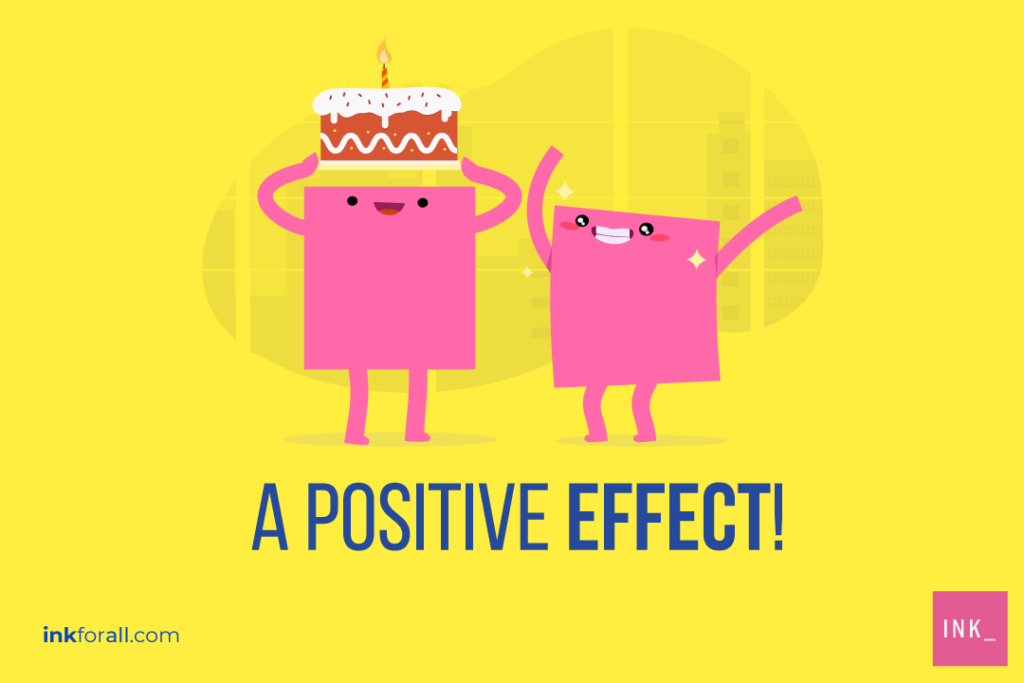

2. The Definition of Effect When Used as a Noun
As a noun, effect means a change that happens as a result of an action.
Watch out! Exceptions to the Rule
In the English language, there are always exceptions to the rule.
Affect and effect have several less common forms and meanings, and each of those comes with unique rules for usage.
In fact, here’s where affect vs. effect gets tricky and can actually switch places as noun and verb.
1. When Affect is a Noun
When affect is used as a noun, it refers to an emotion or an emotional response.
2. When Effect is a Verb
If affect can be a noun, then surely effect can be a verb. Its meaning in this form is to bring about. More often than not, when effect becomes a verb, it’s paired with words like solutions or change.
So, do you affect change or effect change? This is where it gets sticky because technically, either word can be used in this scenario, with different meanings. Instead of conveying the idea of bringing about change, affect would mean impacting existing changes.
3. When Affect is an Adjective
Affect can be an adjective, but only you add an -ed. The word affected is the one time affect becomes an adjective, and it can have two distinct meanings.
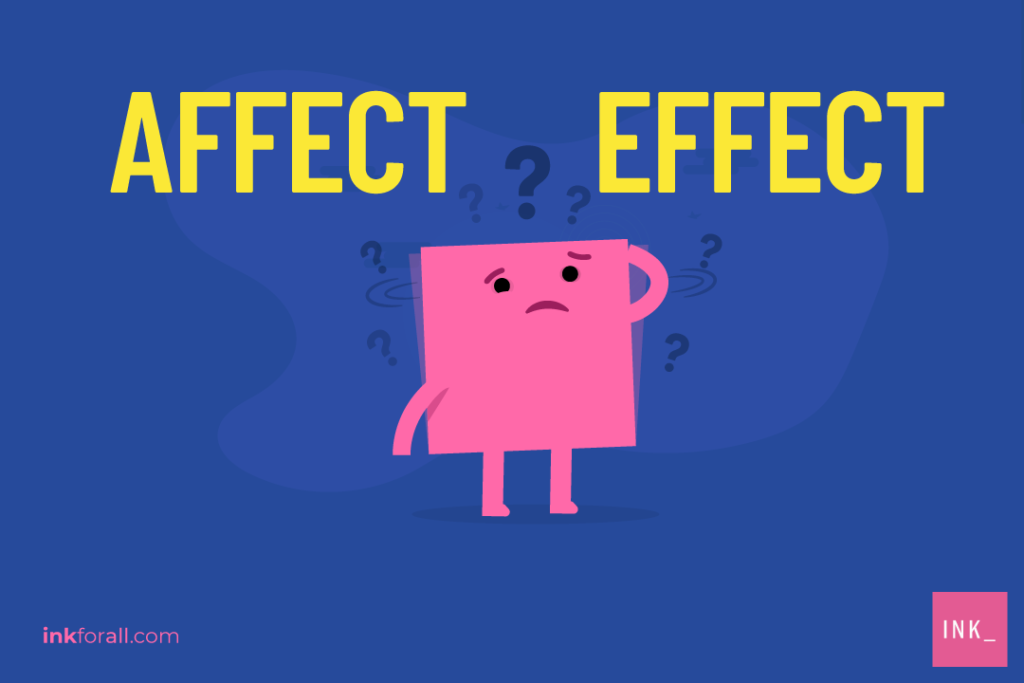

1. Influenced by an External Factor
2. Artificial or Designed to Impress
4. When to use Affective vs. Effective
The answer is almost always effective. That is unless you’re a psychologist.
Meanings and Examples
Although both words are used as adjectives, effective can be used to mean:
- Producing the desired effect
- Impressive
- Optimal
- Ready for action
Affective, on the other hand, can mean:
- Relating to or expressing emotion
- Influencing emotions or feelings
The meanings of affective are generally specific to psychology and emotions. That means that most of the time when choosing between affective and effective, the latter is almost always the word you want.
5. How to use Personal Effects
In this commonly used idiom, effects are synonymous with belongings.
Pronunciation Guides: I now Pronounce you Affect and Effect
Although some people consider affect and effect to be homophones, their pronunciation isn’t actually identical. If you listen closely, you’ll hear subtle differences.
True homophones are words that sound the same but have different spellings and meanings, such as two, too and to. Affect and effect, when articulated correctly, aren’t the same. Affect is pronounced with more of an “ah” or “uh” sound on the first syllable. Effect has the stronger “eh” sound.
Affect vs. Effect: A Brief Recap
Mnemonic Devices: There are several effective mnemonic devices to help in the battle of affect vs. effect. Probably the simplest is RAVEN, which stands for: remember — affect, verb; effect, noun.
Leading with Letters: Pair the letters in affect and effect with letters of common synonyms to remember the meaning. Affect means to alter, while effect means the end result.
Affect vs. Effect Quick Grammar Quiz
Affect Question #1
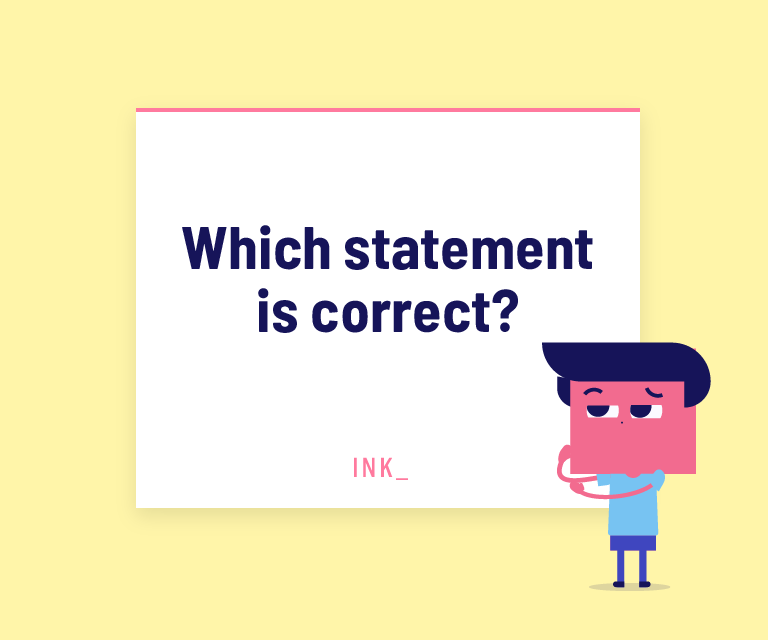

The answer is C. “Affect” is usually a verb, but it can function as a noun when it refers to a behavior or an attitude.
Effect Question #2
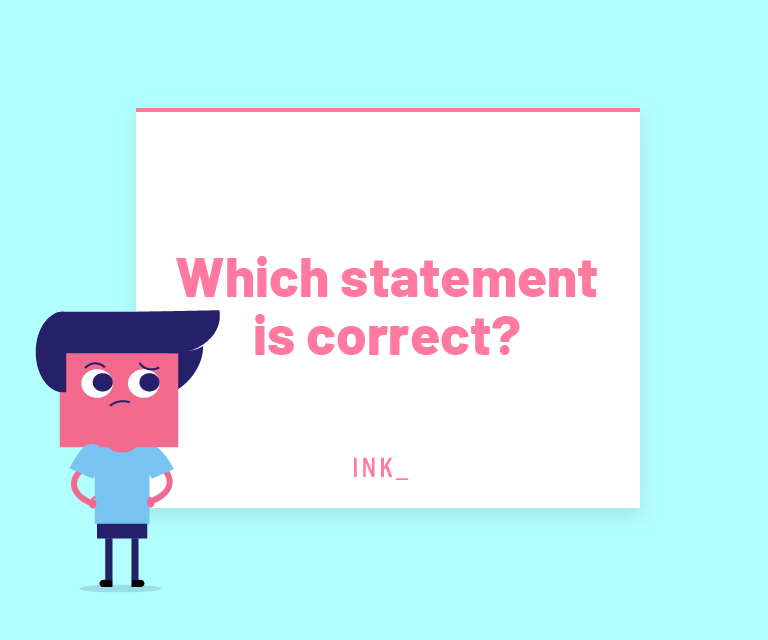

The answer is D. “Effect” is usually a noun, but it can also function as a verb. When acting as a verb, “effect” is usually used with the word “change,” such as in the phrase “to effect change.”
Affect vs. Effect Question #3
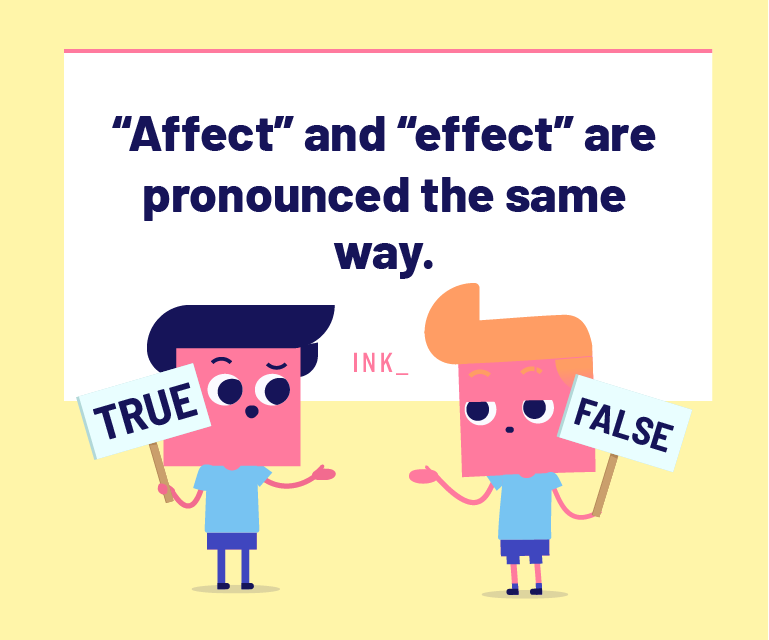

The answer is FALSE. “Affect” and “effect” are not pronounced the same way. When you pronounce “affect,” you drop your jaw and open your mouth like you do when you say “apple”. When you pronounce “effect,” you do not drop your jaw. Instead, you stretch the sides of your mouth like when you say “email.”
Affected or Effected Question #4
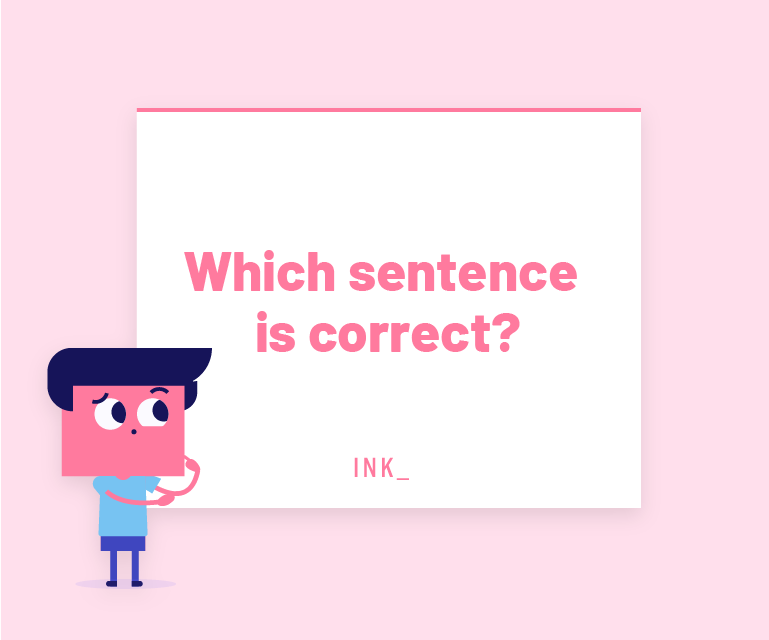

The answer is A. In this sentence, “effect” is acting as a verb. One clue is that “effect” appears with “changes,” which is often the case when “effect” is used as a verb.
Affect or Effect in a Sentence Question #5
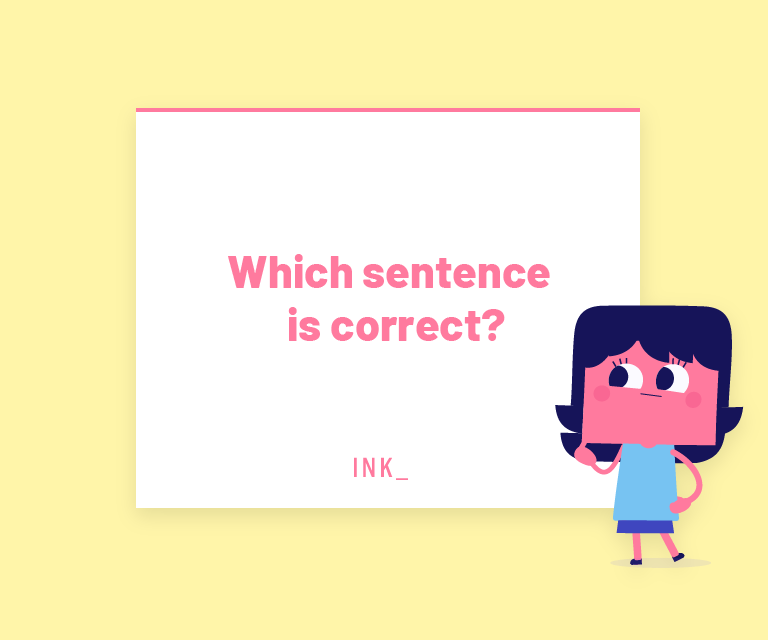

The answer is B. The sentence is about the result of getting too much sun. Since a result is a noun, “effect” is correct as it is functioning as a noun here.
Affect vs. Effect Question #6
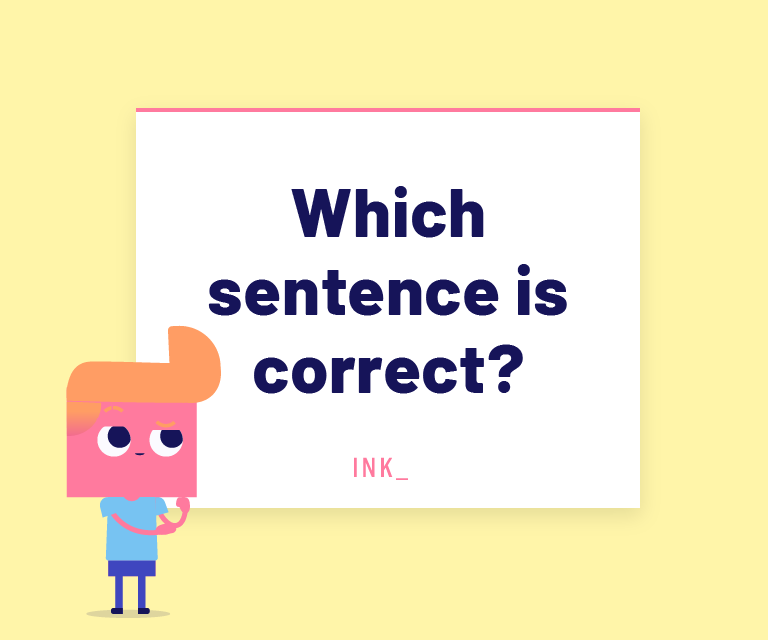

The answer is B. “Sun” is the subject of the sentence and is doing the acting. “Me” is receiving that action. So, “affect” is acting as a verb here and is the correct answer.
Affect vs. Effect Question #7
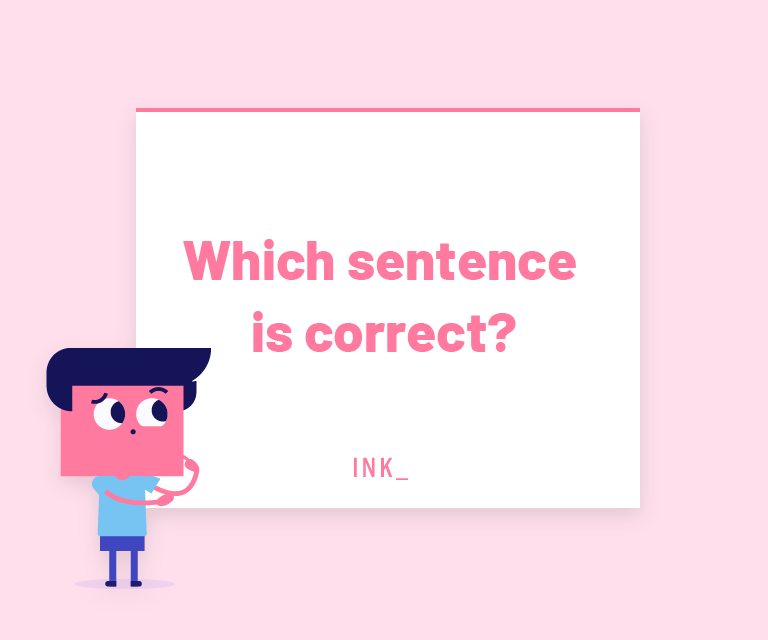

The answer is A. In this sentence, “affect” is acting as a verb.
Affect vs. Effect Question #8
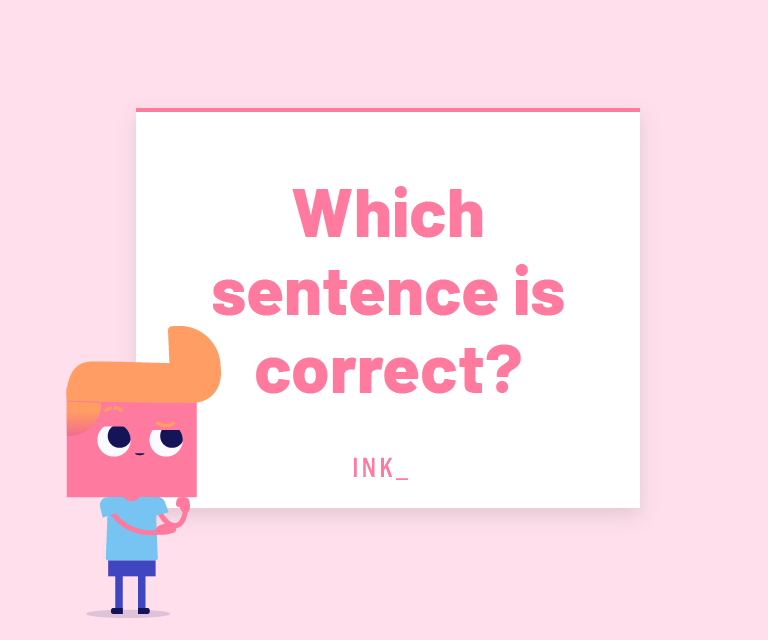

The answer is B. The sentence is about the cat’s attitude. Since “affect” refers to an attitude or behavior when it acts as a noun, the correct answer here is “affect.”


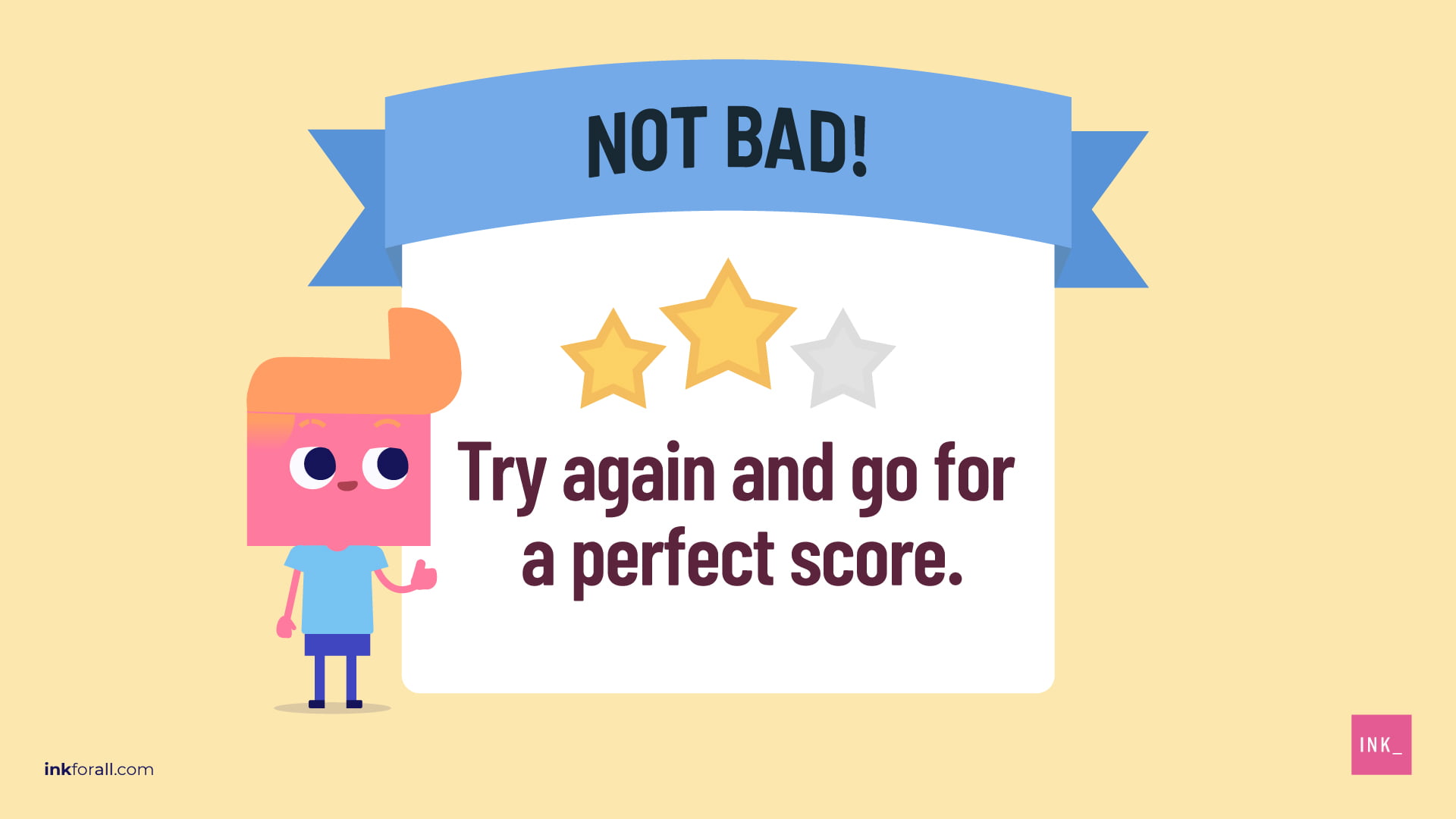

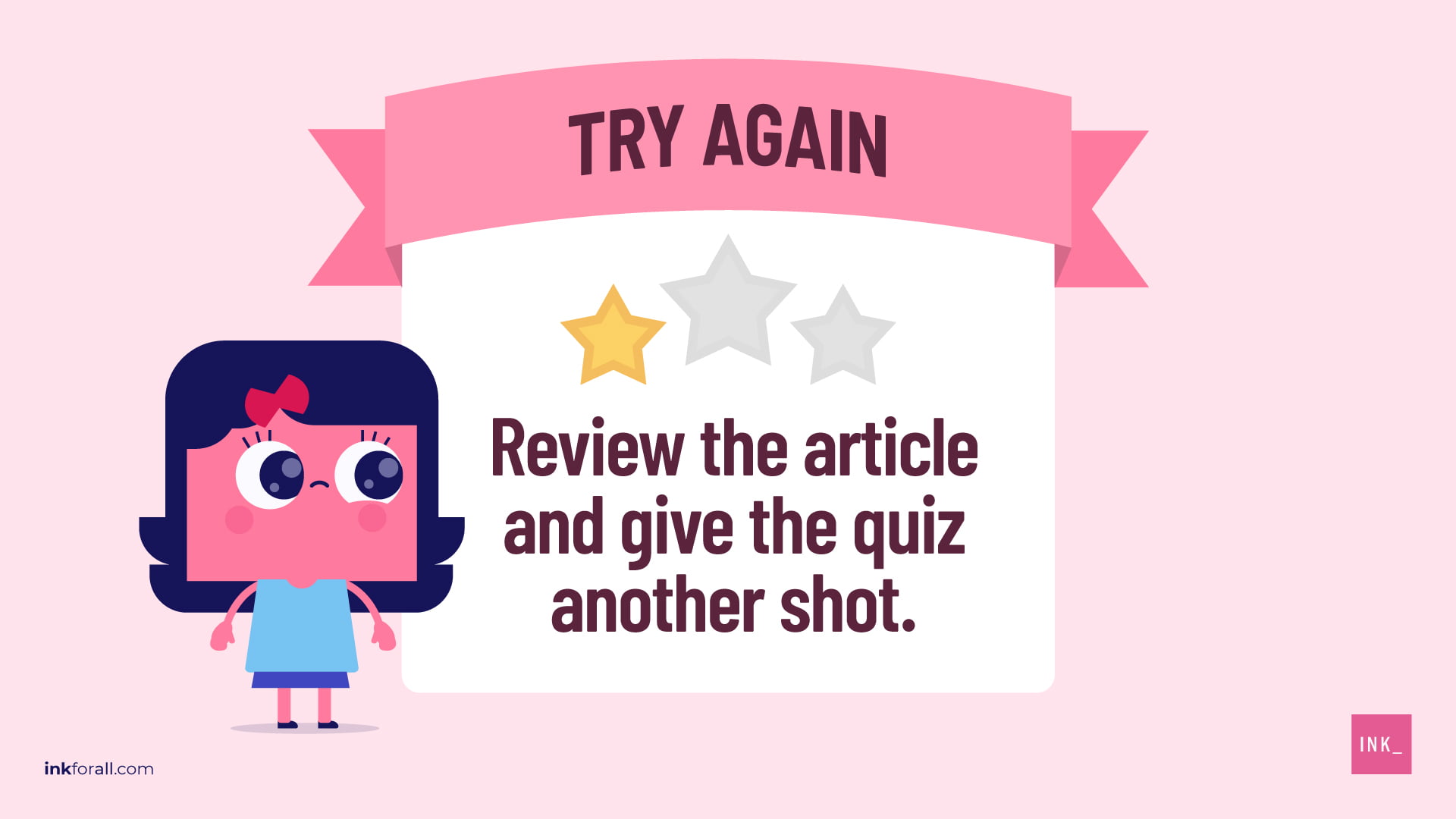


Good. I loved it.
Thanks, Hugo! This means the world to us! Be safe.
What is the difference betweem influence and affect?
Hi! The verbs “influence” and “affect” are synonyms. You can use them interchangeably. Similarly, the nouns an “effect” and an “influence” are synonyms. You tend to see them in this construction: to have an effect/have an influence on. Hope this helps! Thanks again for reading.
Your article was so helpful.
Thank you! Don’t hesitate to let us know if there’s anything you think we could add or change to make it even better. Thanks again for stopping by.
Wonderfu. I likeit.
Thank you, Badal!
Good article
Thank you, Azizul!
good very good
Thank you, Majharul!
It helps me to learns. Thank you.
Thank you, Wahidur!
Nice
Thank you, Eudray!
This article really gonna help so much.
Wow! Thank you for the kind words! We hope that after reading this article, we’re able to clear any confusion you have with using “affect” and “effect.” Again, thank you and have a great day!
thanks
You’re welcome, Sopno. Thank you for reading! 🙂
Towards me! Toward me is a misspelling of towards.
Hi English Grammar! There is a slight difference in spelling based on locale. American English prefers toward while British English prefers towards. Here’s an interesting breakdown of the difference in usage: https://www.merriam-webster.com/words-at-play/toward-towards-usage
Thanks for stopping by! 🙂
Very helpful!!! Thank you ❤️
You’re welcome, Lindsey! We’re glad that you found our article helpful. Take care!
I have the hardest time distinguishing between……affect, and effect!!! I usually get it right when it’s affect, but I’m never sure when to use effect!! Any helpful hints?
Hello Colleen! Tips for using affect and effect are already included in our article here. We also have a short quiz at the end of the post that you can take to test your knowledge. Have a great day!
I am so very confused! You say influence and affect are synonyms. THEN you say effect and and influence are also synonyms! I’m so sorry, but that confused me more then I already was! Can anybody help me make sense of this gibberish?
Hello Colleen. Apologies for the confusion. When used as a verb in a sentence, “influence” holds the same meaning as “affect”. For instance, the sentence “Love can affect anyone.” can also be written as “Love can influence anyone.” Meanwhile, when “influence” is used as a noun in a sentence, it becomes synonymous with the word “effect.” For example, the sentence “Her statement had a powerful effect on the students.” can also be written as “Her statement had a powerful influence on the students.” Hope this clears the confusion. Have a great day!